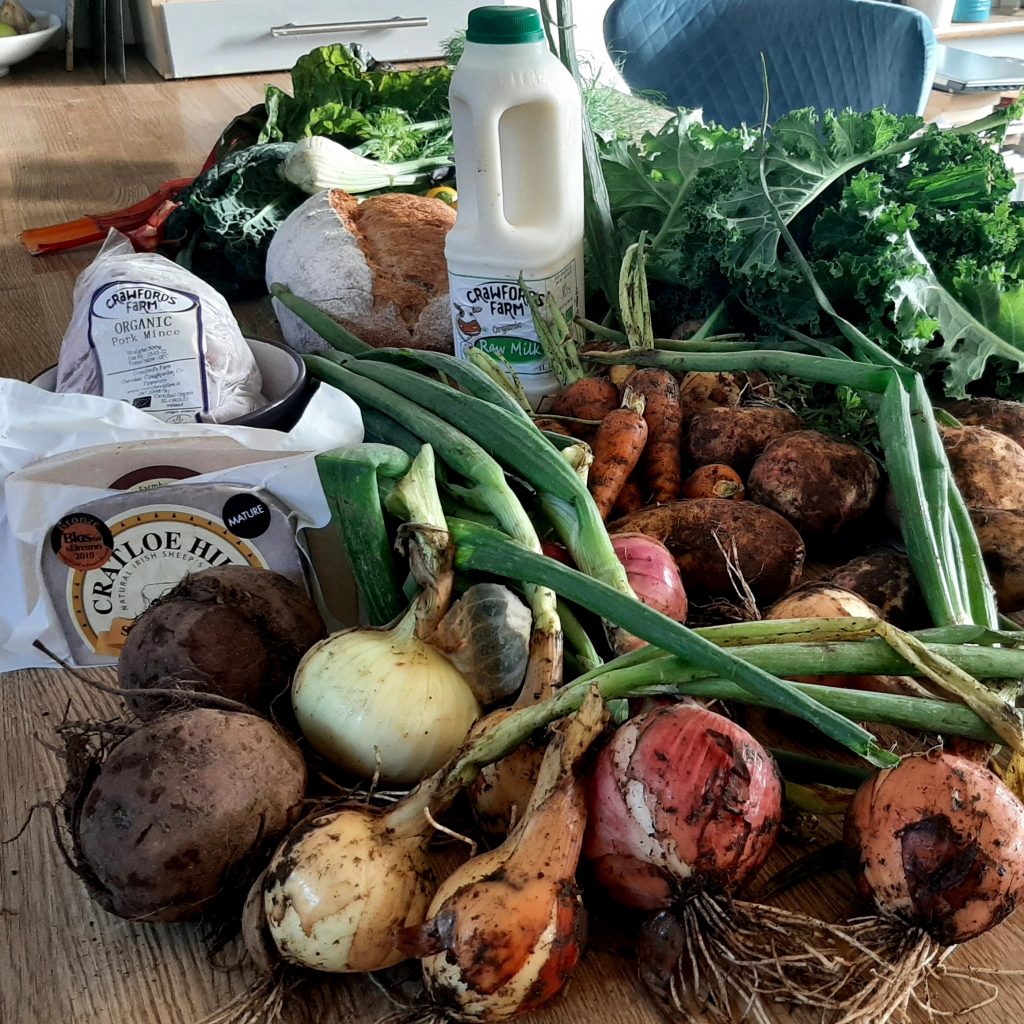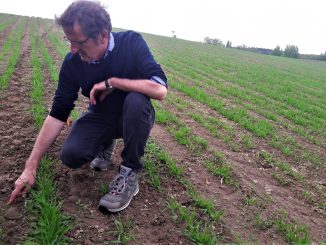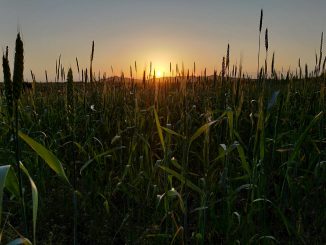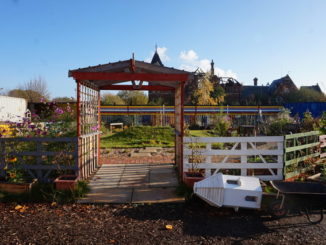
The Sustainable Food System Framework (SFS) was promised, and it must be upheld. As it appears that the SFS is losing its place in the commission’s legislative priorities, this two-part series aims to reaffirm the vital role this law could – and should – play. We are advocating for the SFS, which, in our view, forms the cornerstone of the Farm to Fork strategy. It represents the Commission’s first real opportunity to deliver a fully comprehensive food policy and could serve as the catalyst for a substantial reform of the CAP. Part 1 of two from Mathieu Willard.
Introduction
The Sustainable Food System Framework (SFS) has been one of the most anticipated Green Deal/Farm to Fork initiatives of 2023, focused on accelerating and facilitating the shift to sustainable food systems in the EU by providing guidance for all related policies.
This legislation can be approached from various perspectives, as it aims to lay the foundation for systemic transformation, touching all aspects of the food systems, including production, processing, selling, food environments, governance and policies.
But the initiative remains blurry and uncertain on many aspects. So where are we at in the SFS publication process? What can be expected of it? What should be our demands? Let’s review.
Will it even be tabled?
The proposal was originally scheduled for the third quarter of 2023. And although the legislative train schedule indicates that it has been postponed to the fourth quarter, many observers doubt it will be presented at all during this legislature.
The SFS was recently omitted in Von Der Leyen State of the Union speech and is also absent from the Commission’s agenda until November 29th. Moreover, when MEPs later asked Maroš Šefčovič, Executive Vice-President for the European Green Deal, when the SFS would be tabled, he would not commit on a scheduled publication for the next months. Finally, in a leaked EC 2024 work program entitled ‘Delivering today and preparing for tomorrow’, the SFS was still nowhere to be found.
Is this the final blow or is there still a chance for the SFS?
Recently, a Commission source pointed out that those lists are “not set in stone” and items can still be added or removed if circumstances change. An EU official close to the file also said that this does not mean that the Commission has stopped working on the proposal.
Hope remains, but the window of opportunity is getting smaller every day.
Instead of the SFS, the Commission is now pushing for a strategic dialogue on the future of agriculture. But a dialogue on the future of agriculture will never be able to replace a debate on the SFS, as agricultural production is only a part of the Food System. The whole point of the SFS is to dispatch the responsibility amongst all actors, not only farmers.
In the end, the intention of the European People’s Party and DG AGRI to halt the progress of the Green Deal, by polarising the debate around the Farm to Fork Strategy, seems to have worked – though some aspects such as the Nature Restoration law are still alive.
So while we may not expect a proposal for the SFS to be tabled soon, Food System transformation is still crucial. Its important as a topic in the European elections next year, and its important to harness the energy from the ground, where its working already in places.
To this end, see our upcoming event in Marburg below.
Sustainable Food Systems – Taking Action on the Ground in Germany
What would be the scope and potential for impact of the SFS?
The Inception Impact Assessment for the SFS leaves the door open to an overarching legislation that could have transformative power.
Here below are the main elements that the SFS proposes to address.
- sustainability principles and objectives, providing a common understanding as goals to be achieved;
- general minimum standards to be met for foods produced or placed on the Union market and related food operations, which could be linked, amongst others, to environmental and social aspects;
- responsibilities of food system actors;
- horizontal elements for sustainability analysis in relation to regulated products in the food chain, complementing the existing ‘risk analysis’ principle.
- legitimate and proportionate requirements on sustainability for imports of food, in compliance with EU international commitments, particularly in the WTO;
- processes to ensure synergies and mechanisms, including incentives, to facilitate the transition towards sustainable food systems;
- provision of information on the sustainable performance of the food (sustainable labelling), while ensuring consistency with other relevant EU labels (e.g., organic) and taking into account other relevant ongoing Union initiatives.
- minimum mandatory criteria for sustainable food procurement in schools and public institutions;
- governance mechanism(s) of the Union sustainable food system, e.g. appropriate cross-sectoral coordinating mechanisms for joint actions between governments, civil society and the private sector, including with third countries;
- actions to mitigate impacts that the transition towards a Union sustainable food system might have on food systems’ actors;
- EU wide monitoring framework(s) for evaluating progress towards the Union food sustainability objectives.
Many of those elements are still quite vague and could easily be overlooked in the future proposal. In the end, the SFS could become a marginal legislation, that would have a sporadic impact.
A leaked SFS Impact Assessment report from February 2023 shows indeed that the retained policy options at that stage already concerned only minimum requirements (2), sustainable labelling (7) and sustainable public procurement (8).
Among these three options, only the ‘minimum requirement‘ policy would have an overarching scope. However, the degree to which it would oversee changes across all Food System actors remained to be determined. In the leaked document, the options ranged from a purely voluntary approach to the establishment of minimum sustainability standards based on the ‘do no harm principle,’ along with the allocation of responsibilities among food system actors to strengthen due diligence. Finally, there was also consideration of phasing out the least sustainable products in the EU.
While the SFS, as outlined in the leaked Impact Assessment (IA), may seem somewhat watered down, it is imperative to advocate for its introduction. Firstly, publishing this law would provide a groundwork for future negotiations. Secondly, given that the systemic dimension of the food debate is often disregarded, we need prioritise all legislative proposals going in that direction. Thirdly, embracing a systemic perspective when addressing food will aid in shaping a vision for the upcoming CAP.
Why the SFS? And what for? People’s and ecosystem’s health in peril
The cost of letting public and environmental health degrade is becoming an ever-pressing issue on which a consensus is building. This issue is already imposing substantial costs on society, and the outlook is expected to worsen. Unhealthy food, characterised by excessive processing and high sugar and fat content, is placing an increasingly heavy burden on our healthcare system. These costs are ultimately communalised through our healthcare system and benefits pharmaceutical industries.
This raises the question of the true cost of food, encompassing all the ramifications of the food system’s societal impacts. In this context, the notion of cheap food for all, championed as an indispensable objective by the industry and certain political groups, is a fallacy designed to uphold the food industry’s influence within the system. Agri-industrial actors don’t have to pay for what are euphemistically called externalities, so the system as its working currently, works for them.
It is why the discussion around food systems is also a discussion about social equity as regards the access to good food for all. If the food gets cheaper, no farmer will be able to live from their production. If we pay the farmers through subsidies, we take the risk that those subsidies will not be well distributed, or partially punctured by agri-food industries who will lower their buying prices. Moreover, badly worked out subsidies risk embedding damaging practices, sometimes compounded by the emerging idea of insurance against ever more common risks.
But if the price of food really reflects its true cost (social and environmental), we take the risk that low-income populations will not be able to access this basic need. This is why food system need to be designed carefully and new systems, like social security for food, need to be developed.
Just like health issues, deteriorated ecosystems impose escalating costs on both farmers and society at large. These costs encompass not only financial burdens but also intangible aspects such as aesthetic and spiritual value, which can be challenging to quantify.
Prioritising high-quality food produced without harming our environment should be a key focus for the EU. Furthermore, the EU should strive for self-sufficiency, not solely in terms of calorie production but also in providing nutritious food to support healthy diets, while ensuring that everyone has access to these products, even if the prices rise.
To achieve this, it is imperative to rekindle the connection between broader society and food production. Bridging the gap between farmers and consumers is of great importance, which is precisely why the strategy is called “Farm to Fork”. In that sense, a top priority is the relocalisation of food production.
Need: local food systems
Fair and ecologically focused food systems at local and regional level, in vibrant rural areas, are our best choice for the future, and that for many reasons.
- Local food systems can be more resilient in the face of external shocks, such as disruptions in global supply chains or extreme weather events. They offer a degree of self-sufficiency, reducing vulnerability to distant disruptions and ensuring a more stable food supply for local communities. Strengthening local food systems thus enhances food security at the local and regional levels.
- Supporting local food systems can reduce the environmental footprint of food production and distribution.
- Encouraging local and traditional food production methods can help preserve biodiversity. Local farmers may grow heritage or heirloom varieties and use practices that support diverse ecosystems, contributing to the conservation of plant and animal species.
- Encouraging local food consumption can boost the local economy. It supports small-scale farmers and food producers, keeping money circulating within the community. This can lead to job creation, increased income, and economic vitality in rural areas.
- Promoting local consumption can improve access to high-quality, fresh, and healthy foods.
- Local food systems often promote cultural and social connections between farmers and eaters. Consumers have the opportunity to learn about their food’s origin, meet the people who produce it, and participate in local food traditions. This strengthens community ties and fosters a sense of trust and accountability.
Aligning EU policies and frameworks with local food systems reinforces the EU’s commitment to sustainability and environmental protection. It can help bridge the gap between policy goals and practical, everyday actions.
And for that purpose, the EU needs to provide policies and financing on all aspects of the food systems (production, processing, governance, consumption, marketing…) to transition towards local food systems.
Hopefully, the SFS can be the master guide to this effect, at least in guiding future policies.
And as a start, it should be clear that this new framework would have to influence the CAP which represents 1/3 of the EU budget and where most of the money linked to food policy in the EU goes for now.
Therefore, delving further into the possible links between the CAP and the SFS will be the focus of PART 2 of this series.
More
EU Fails to Deliver on Food System Transformation in Face of Environmental Collapse
Food Security, Food Sovereignty, and Collective Action During the War in Ukraine
Ernährungsrat: The democratic potential of Food Policy Councils in Germany
France | Democratising Food Policy – Tweaking The Financial Toolbox
Feeding Ourselves 2023 – Diversified Diversification in Action
Cultivating The Future Together – ARC’s Rural Resilience Gathering in France
Rural Europe Takes Action | A Shared Space for Food Transition
Rural Europe Takes Action | CSA and the Building of a Food Commons
Italy | Digitalisation, Short Food Chain and Sovereignty – Fuori di Zucca






1 Trackback / Pingback
Comments are closed.